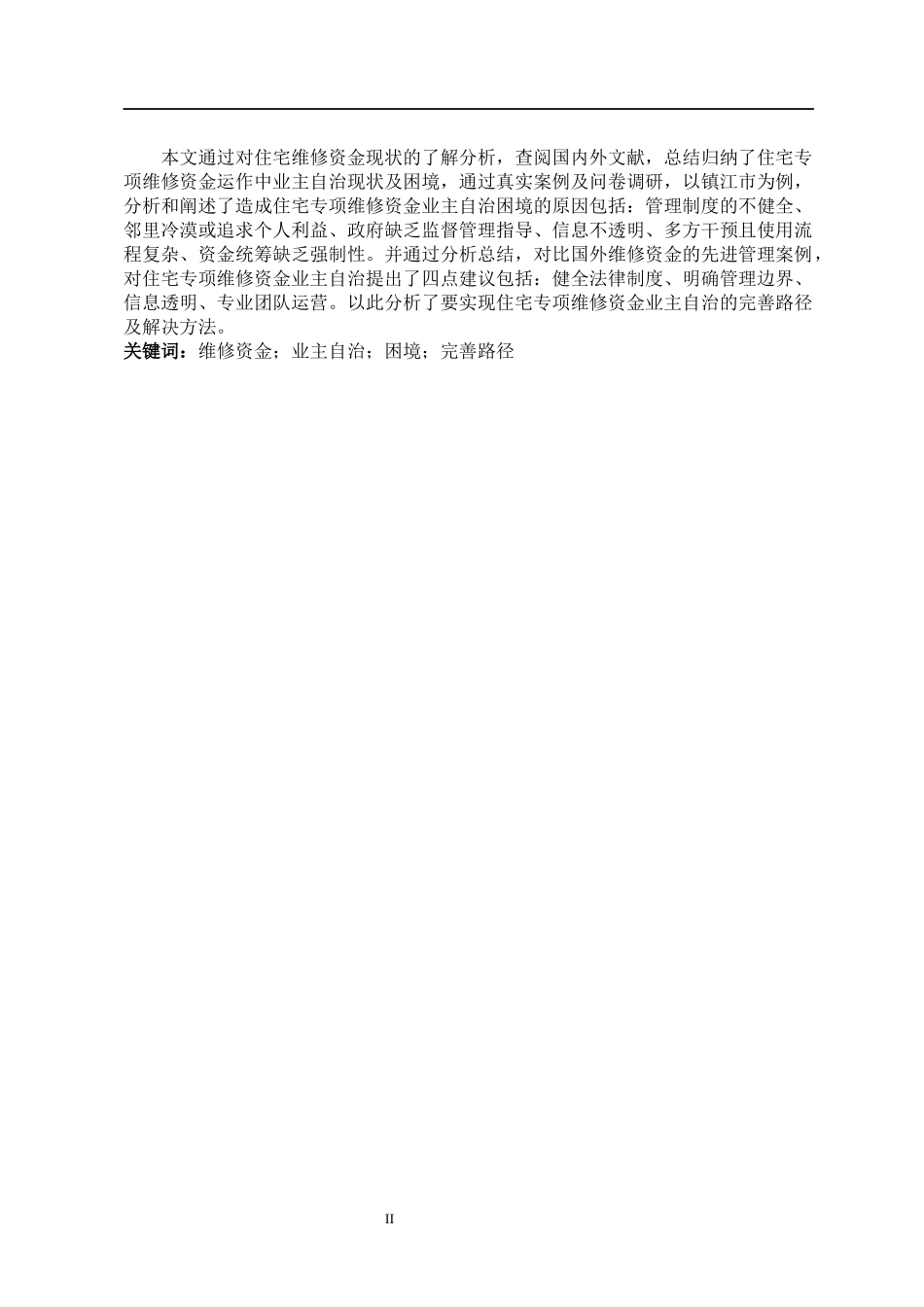I住维修宅专项资金中的业主自治研究摘 要2003 年我国颁布了《物业管理条例》,初步确立了以业主大会为核心的业主自治机制,业主委员会作为全体业主的权利机构,代表和维护着全体业主的公共利益,对物业有关的一切重大事项拥有决定权。2007 年 10 月 30 日由建设部第 142 次常务会议讨论通过《住宅专项维修资金管理办法》,经财政部联合签署并发布,明确住宅专项维修资金是指专项用于住宅共用部位、共用设施设备保修期满后的维修和更新、改造的资金,不得挪作他用,该基金是由物业内的业主共同筹集,全体业主共同所有,由业主按照缴纳比例享有所有权公共利益。但住宅专项维修资金但在维修资金实际的运行过程中,却因为种种客观因素无法实现业主自治。II本文通过对住宅维修资金现状的了解分析,查阅国内外文献,总结归纳了住宅专项维修资金运作中业主自治现状及困境,通过真实案例及问卷调研,以镇江市为例,分析和阐述了造成住宅专项维修资金业主自治困境的原因包括:管理制度的不健全、邻里冷漠或追求个人利益、政府缺乏监督管理指导、信息不透明、多方干预且使用流程复杂、资金统筹缺乏强制性。并通过分析总结,对比国外维修资金的先进管理案例,对住宅专项维修资金业主自治提出了四点建议包括:健全法律制度、明确管理边界、信息透明、专业团队运营。以此分析了要实现住宅专项维修资金业主自治的完善路径及解决方法。关键词:维修资金;业主自治;困境;完善路径IIIIIAbstractAbstractIn 2003,China promulgated the property management regulations, which initially established the owner's autonomy mechanism with the owner's Congress as the core. The owner committee,as the authority of all the owners, represents and maintains the public interests of all the owners, and has the right to decide all the major matters related to the property. On October 30 , 2007 , the 142nd executive meeting of the Ministry of construction discussed and adopted the measures for the management of housing special maintenance funds, which was jointly signed and issued by the Ministry of finance. It is clear that the housing special maintenance funds refer to the funds speciall...


